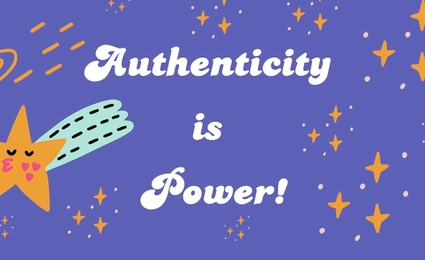
Don't say "sucks" on LinkedIn
And other unhelpful advice from my father.

Let me start by introducing you to my dad—a brilliant, hardworking, funny man who enjoys terrible dad jokes, stomping around the house, playing with the thermostat ("It doesn't need to be this warm in here; I can only just see my breath!"), and reorganising the dishwasher ("It won't get clean if it's on the top shelf like this.").
He was a high school history teacher, worked for Maryland Senators Sarbanes and Dodd, helped write one of the most significant financial regulatory laws ever enacted—the Dodd-Frank Wall Street Reform and Consumer Protection Act—and was a model for a Swedish chocolate company when he was 11 years old (seriously).
And at 67 years old, he is finally retiring.
Despite his success in the world of affordable housing, drafting national legislation, history, and Swedish chocolate…
He doesn't know much about marketing.
I love you, Dad, but you don't.
So, when updating him on my copywriting and marketing musings over the Christmas break, he interrupted me and said, "I read one of your LinkedIn posts. It was good, but you shouldn't say say 'suck,' say 'stinks.'"…
I laughed and told him I wasn’t going to do that.
He pleaded his case:
"You can convey the same point with 'stinks'." Disagree.
"You never know who is reading it." Agree
"It might turn people off of hiring you." Sigh.
Let's go through his points one by one.
You can convey the same point with a less provocative word - I disagree.
I have not said something ‘stinks’ in about 15 years (despite my mother's insistence when we were teenagers) because it doesn't have the same power of saying that something really, truly, sucks.
Here are a few examples where “stinks“ doesn’t have quite the same impact:
"Donald Trump winning the Presidency for a second time stinks."
"It stinks that only 15% of UK businesses are owned or led by women."
"My dog rolling in fox poo stinks." - okay, this one works both ways, I'll admit.
These statements are more powerful and impactful when you replace ‘stinks’ with ‘sucks.’
My point?
Words matter.
And looking at every word you use and why you use it in that order, that cadence and tone is exactly what I do for a living.
Sometimes, ‘stinks’ doesn't convey what you need it to.
Sometimes, things just suck.
You never know who is reading your content.
He's right.
The internet is forever; we've all learned that for better or worse.
(I'm looking at you, embarrassing pictures of myself in high school with angsty captions.)
While I don’t have tens of thousands of fans or followers, someone, somewhere, could stumble upon a post where I say (gasp) sucks.
If that's you, welcome!
I say sucks on this Substack and my LinkedIn because I say it in real life.
It's how I talk, and it's authentically me. No apologies to give out here.
Let me ask you a question: When you talk to a new person on a dating app, how would you feel if you meet in person, and there is a massive gap between how they present themselves via text and how they act when you’re in the middle of dinner?
You’d feel cheated. Deceived. Angry.
When you write online for yourself or your brand, you might be tempted to become a prim and proper robot because you think that is what your audience wants.
They don’t. They want you, warts and all.
It might turn people off of hiring you
That is absolutely fine.
If someone is so turned off by my exclaiming, "This sucks", I don't know if I want to work with them.
How I speak, write, and communicate for myself isn't how I will speak, write, and communicate for you and your brand.
If someone doesn’t understand this, they might not understand how copywriting works.
Working in Nike's marketing department doesn't mean you have to be an elite athlete.
Being in distribution for Coca-Cola doesn't mean you don't secretly like Pepsi better.
Being a member of Greenpeace doesn't mean you have to refuse your mum's roasted goose fat potatoes.
I've said it before, and I will say it again.
You are not your job.
Marketing and copywriting are about adaptability.
It's about knowing your audience, their frustrations and pain points, and communicating how your product/service/thing can solve their problem better than everyone else.
So when I say "sucks" instead of "stinks," it's because I want to work with those who appreciate my authenticity.
Who agrees that sometimes, things do suck.
So no, Dad, I won't stop saying “sucks” on LinkedIn.
If the situation calls for it, I might even throw in a well-placed curse word (sparingly, and probably with some “£$^&% thrown in).
Like Papaya’s Christmas campaign, where they posted dozens of hilarious videos of a potty-mouthed Mrs Claus ranting about how much she "f*&$ing hates gift-giving" and instead gets all her friends and family Papayas artsy, cute, reusable paper towels.
Hilarious. It immediately made me want to keep watching and look up their products.
Because they know their audience doesn’t mind a bleeped-out swear word here and there.
Like all things, it's nuanced.
What works for Papaya might not work for a brand with a different target audience.
But in the case of dad vs daughter on marketing and word choice, the jury finds in favour of being yourself.
However silly, profound, mysterious, or "out there" you might be.
Case closed. *Bangs gavel*
Corinna Miller Helping turn browsers into buyers through creative and conscious copy for women-led and sustainable businesses. Opinions Expressed by She Makes Her Contributors are their own